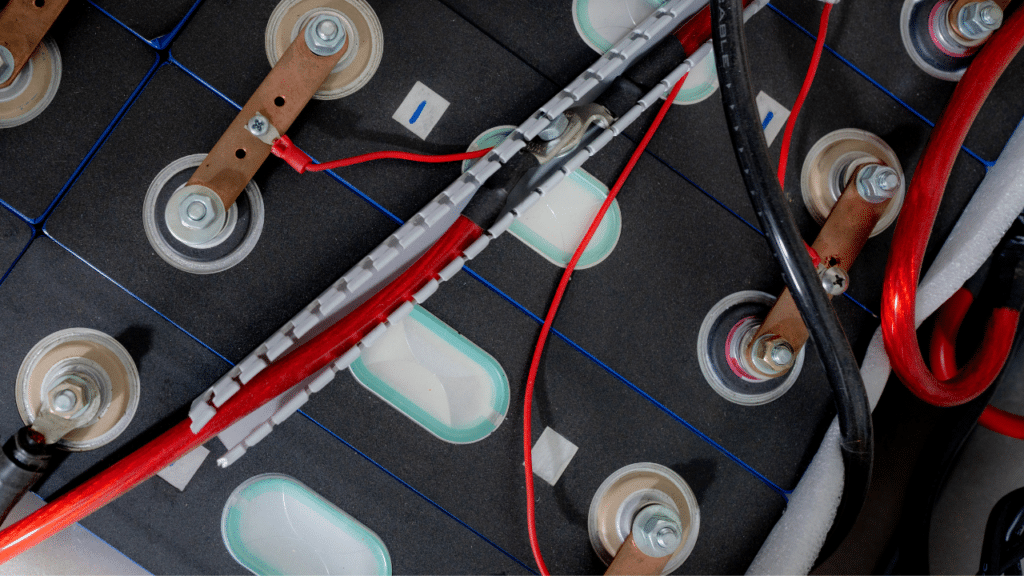A Guide to Preparing for a Telephone Interview or a Video Interview!

Whether you’re applying for a remote job or are at the interview stage, telephone/video interviews are extremely popular.
Even though a telephone/video interview might seem less nerve-wracking, since you don’t have to meet your interviewer face-to-face, you don’t need to worry about body language, and you can wear more comfortable trousers, it’s still important to avoid appearing too relaxed! You still need to appear professional and keen. On the phone or through video calls, it can be harder to convey your personality and build a rapport with the interviewer.
Body language and location during a video interview:
Make sure you’re sitting straight, have the right posture, and make eye contact throughout your video interview. Don’t forget to smile when appropriate. Listen carefully and keep calm.
Make sure you speak clearly and don’t speak too fast. After answering a question or answering a question, pause so you don’t talk over the interviewer. It’s harder to tell when the interviewer has finished talking on a video call, and there could be a delay (which started midway through).

Your laptop camera/webcam should be positioned at a good angle. You want to look directly at the camera so that the interviewer is facing you head-on. Avoid having the camera pointed upwards at your face. This camera angle gives you the impression that you are unprepared.
Be sure that there is no background noise or distractions (such as pets or children) and that the lighting is adequate. Make sure the background is neutral and free of distractions.
Technical preparation for a video interview:
To test your camera or microphone, log into the interview platform ahead of time. Make sure your webcam isn’t blurry and that the sound is clear.
During the interview, close any applications you don’t need. You may experience a slowdown in your computer’s performance if there are too many applications open. Email notifications, etc., will be distracting.

During the interview, you’ll probably have to show examples of your work. If you’re going to share your screen, make sure you have the pages/documents you’ll be sharing ready before the interview. You might lose confidence if you can’t access these examples easily during your interview.
Keep notes on your examples nearby so you can showcase your work clearly.
Do your research:
Before your tech interview, learn as much as you can about the company. Knowing the company’s history, mission, and values will help you make a good impression.
Take a look at the company’s website and social media accounts. Here you can find out more about their products, services, and goals. Make sure you know all the job requirements and can give examples for each.
Take a look at the company’s competitors too. You can answer better questions during the interview if you know what makes the business unique.
Don’t forget to research the interviewer. If you know who you’re meeting with and their role, you can tailor your responses and ask more relevant questions.

Practise your answers:
You can’t predict what the interviewer will ask you, but you can almost guarantee a curveball question that will throw you off and keep you on your toes. However, if you’re well prepared to answer some common competency-based tech interview questions, you’ll feel much more relaxed and confident.
Taking a look at these examples will help you get started:
1. What resources do you need to perform your job?
2. How do you keep your skills up-to-date?
3. Would you be able to explain [target technology] to someone who does not know it?
4. In your opinion, what are the most relevant strengths for this role?
5. In light of the upcoming tech advances, how do you think your skills/job will change?
6. What do you hope to accomplish in your first six months?
7. Why are you interested in working here?
Be yourself:
In an interview, you might try to portray yourself as the perfect employee, but what does that even mean? It’s impossible to be ‘perfect’ because it’s not only unrealistic but also subjective.
Interviews can be nerve-wracking even if you don’t set unrealistic goals. You want the interviewer to see your best qualities and abilities, but they also need to be realistic. If you embellish your skills and experience, it’ll be more stressful. It’s not a good idea to boast about a skill you don’t actually have. It will backfire on you if you’re given the role and asked to use that skill.
To be happy at work, you need to know if this role and company are right for you. Interviewers want to know if you’ll fit in with their team. Talking freely and letting your personality shine through allows you to have a more relaxed interview.

Don’t be embarrassed to sell yourself:
The idea of not over-embellishing is important, but some people are just too modest. Your interview is a great opportunity to tell your story and describe your accomplishments. Make sure you know what you can contribute to the team! If you have skills and talents that the company wants, otherwise you wouldn’t be there.
Ask questions:
Your interviewer will ask if you have any questions at the end of the interview. There’s so much temptation to say, ‘No, we’ve covered everything’. Should you feel that the interview went well, you might want to wrap things up as soon as possible.
Be sure not to let yourself fall at the last hurdle! You will be able to demonstrate your interest in the role and the company by the questions you ask. If you don’t ask questions, you may appear uninterested or unmotivated.
It’s also important to ensure that the company/team/manager matches your skills and personality. Answers to your interview questions may reveal a lot about how your interviewer operates.
Make sure you prepare at least five questions. After covering a lot of ground in the interview, make sure you have a question prepared that hasn’t already been discussed. Don’t be afraid to write these questions down and refer back to your list as needed; you’ll show how prepared you are.
What is it that you really want to know about the business/team/manager? If you are successful in obtaining the position, what do you hope to accomplish? When creating your list of questions, use these as a starting point.

We’re here to help:
You can contact your Darwin consultant for assistance with all aspects of your interview. Call us before your interview if you have any questions or if you’d like to learn more about the company or person you’re interviewing with. We’re here to help!
Wishing you the best of luck in your interview and don’t forget to give your recruiter feedback!











